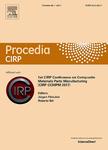版权所有:内蒙古大学图书馆 技术提供:维普资讯• 智图
内蒙古自治区呼和浩特市赛罕区大学西街235号 邮编: 010021

作者机构:Hamburg University of Technology Institute of Product Development and Mechanical Engineering Design Denickestraße 17 (L) D-21073 Hamburg Germany Hamburg University of Technology Institute for Technology and Innovation Management Am Schwarzenberg-Campus 4 (D) 21073 Hamburg Germany University of Waterloo Department of Systems Design Engineering 200 University Avenue West Waterloo Ontario Canada N2L 3G1
出 版 物:《Procedia CIRP》
年 卷 期:2017年第60卷
页 面:524-529页
学科分类:12[管理学] 1201[管理学-管理科学与工程(可授管理学、工学学位)] 08[工学]
主 题:Design Methods Acceptance in Practice Continuing Education Personalization of Design Methods
摘 要:One possibility to establish and foster efficient method transfer from academia to industry is via the heads of professional designers and design students. The transfer and use of design methods in a sustainable way is related to the methods’ acceptance by the user which is accompanied by many challenges. Educational concepts and design method adaptions have been chosen as decisive control parameters among many others in order to understand and evaluate how these can influence the acceptance of design methods in industry. An interview study to gain an understanding of the rationale of educational needs of engineers has been conducted to enrich existing literature in this area. The evaluation of feedback from academia-industry cooperation revealed specific challenges accompanied with educational concepts for modularization design methods. Based on these findings, an adaption was developed and an experiment study was conducted with students as future designers to decode variable factors in design training, gain qualitative feedback to a specific adaption and gain an understanding for the conditions and limitations of an experimental study. Joint conclusion reveals the need for improved education in method transfer and adaptions of the design methods to user-specific needs and paved the way for a series of experiments with various treatments of study participants regarding different personalized adaptions in design methods.